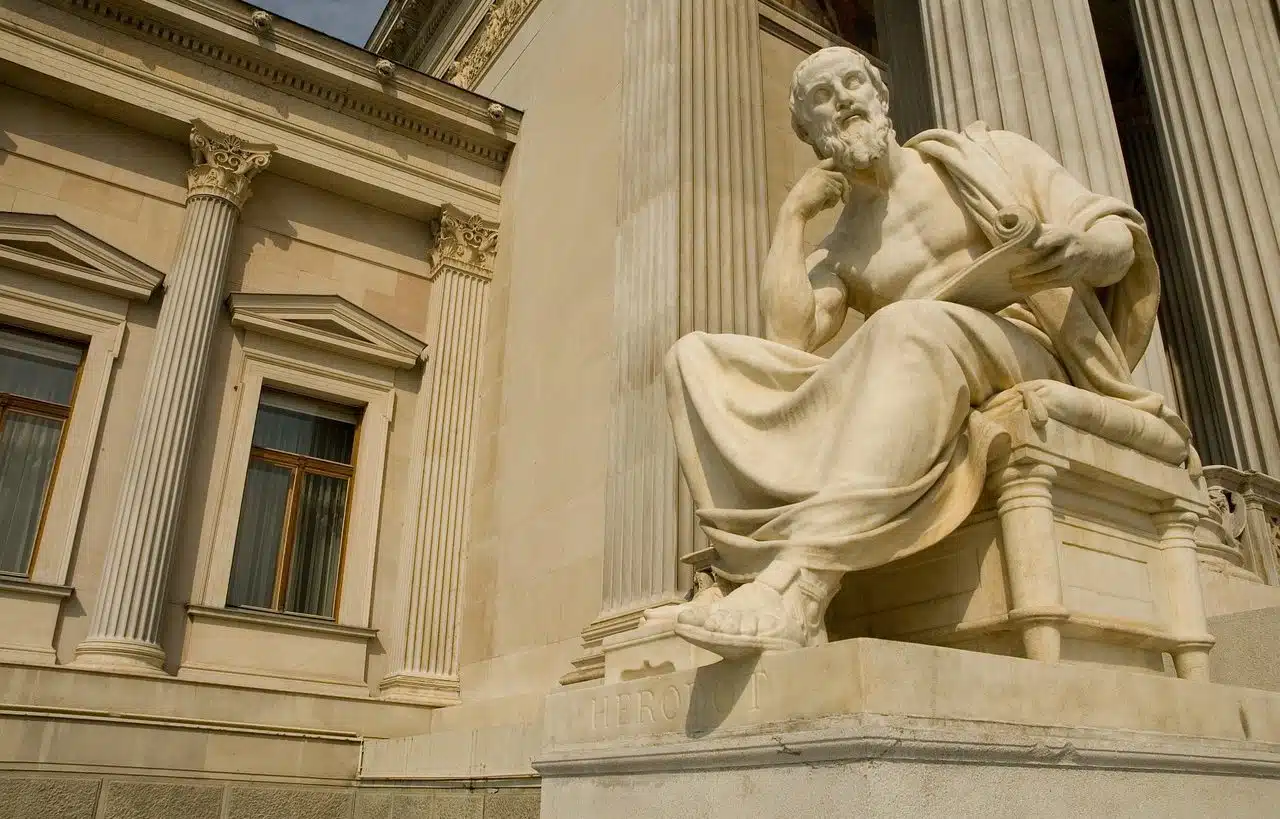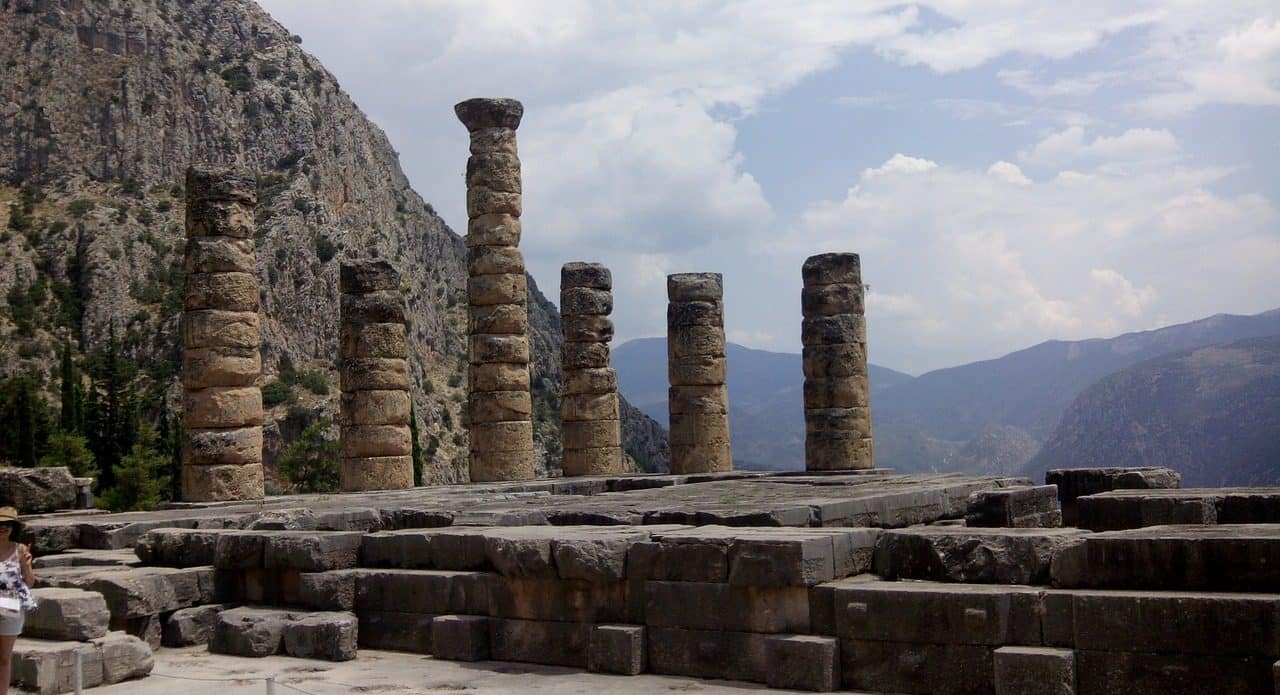
The history of Ancient Greece is known thanks to the work of historians such as Herodotus and Polybius.
Ancient Greece is a concept that refers to a historical period of Greek civilization . This stage, also mentioned as Ancient Greece , begins around 1,200 BC and extends until 146 BC. C.
The notion also refers to the society and culture of that time. In this sense, it is often said that Ancient Greece was the basis of all European cultural development thanks to its scientific advances, artistic works, the development of novel political models and various innovations in multiple areas.
Origins of Ancient Greece
The origins of Ancient Greece are often a matter of debate among historians. Generally, its beginning is associated with the so-called Dark Ages , which began to develop with the fall of the Mycenaean civilization and lasted until the Archaic Era .
The Mycenaean people existed in the final stretch of the Bronze Age . It is considered a pioneer of Greek civilization due to its writing system and its urban organization. It is estimated that its decline began in the 13th century BC. C. and became notorious from the end of the 12th century BC. C.
There are experts, however, who prefer to place the birth of Ancient Greece in 776 BC. C. That year the first ancient Olympic Games were held, bringing together representatives from different polis. It should be mentioned that the Greek polis was a city-state: each one had its independence. These polis emerged in the Dark Ages through the process known as synecism, with which population groups joined together to form larger units.

In Ancient Greece, people went to the Oracle of Delphi to know the future.
Its stages
It is possible to recognize various stages in Ancient Greece . These phases, with imprecise limits and established only for analytical purposes, are determined from certain important events and the degree of advancement of pottery.
The first stage of Ancient Greece , as we already indicated, was the Dark Ages . The lack of references and vestiges makes knowledge of this period difficult, although there are allusions to it in texts by Hesiod and Homer . In the Dark Ages , which runs from 1200 BC. C. to 750 BC. C. , designs based on geometry emerged in ceramic works and a religious unification occurred.
Then, between 750 BC. C. and 500 BC. C. , the Archaic Era took place with the consolidation of the city-states and the formation of a common identity among all the Greek peoples.
The third stage of Ancient Greece is known as the classical period, which began in 500 BC. C. and reached 323 BC. C. The Peloponnesian War and the Persian Wars are events that marked these years, where there was a notable advance in Greek architecture (with the construction of the Parthenon , for example) and in various artistic branches (painting, sculpture, etc.). Great exponents of Greek philosophy also lived in the classical period, such as Socrates , Plato and Aristotle .
From 323 BC C. until 146 BC. C. the Hellenistic period took place, crossed by the death of Alexander the Great and the Greek expansion through the East . For many historians, Ancient Greece ends with the battle of Corinth that made the Roman conquest possible.
Other scholars, however, include Ancient Greece in two more stages: Roman Greece (from the Battle of Corinth in 146 BC to the declaration of Byzantium as the capital of the Roman Empire ) and Late Antiquity (which would reach the beginning of the 6th century with the consolidation of Christianity ; in this framework, the closure of the Academy of Athens in 529 is mentioned as a definitive milestone).

The Seven Wonders of the Ancient World were established in Ancient Greece.
Main references of Ancient Greece
Summarizing almost a millennium of history in a few lines is an impossible task. But it is important to refer to the main references of Ancient Greece : places, personalities, processes and concepts that transcended the centuries and reached the present day.
Athens was one of the most relevant polis of that period. Athenian democracy was the political system that was established in the 6th century BC. C. valid until 322 BC. C. It stood out for citizen participation, the central role of the agora (the public square that served as a meeting point), the electoral processes to occupy public positions and the actions of institutions such as the courts and the assembly.
Greek medicine , meanwhile, bequeathed us the Hippocratic Oath . This is a series of principles proposed by Hippocrates that doctors and other health professionals must respect.
If we focus on Greek mathematics , we must name Pythagoras , key in the advancement of geometry and arithmetic and whose name allows us to name a famous theorem. Greek mythology with its heroes and gods (such as Hercules , Aphrodite , Apollo or Zeus ) and literature with works such as the Odyssey and the Iliad also exerted and exert a great influence on the Western world.
